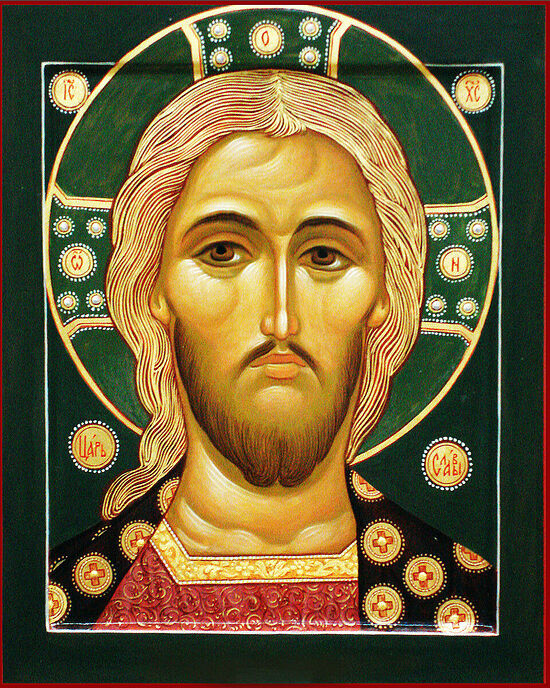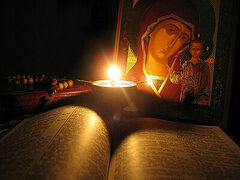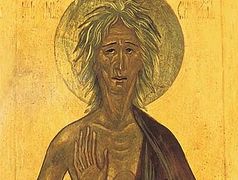Part 1. Repentance is the Awareness that Communion is Lost
His Grace Bishop Atanasije (Jevtić) of the Serbian Orthodox Church reposed in the Lord on March 4. Thousands of Orthodox faithful, including hierarchs, clergy, monastics, and laymen came out to bid farewell to the beloved former hierarch of Zahumlje and Herzegovina at his funeral and burial on March 6. Bp. Atanasije was a spiritual child of the great dogmatician St. Justin (Popović) and was a respected theologian in his own right. In fact, in his message read out at Bp. Atanasije’s funeral, His Holiness Patriarch Porfirije numbers him together with the great theologians Sts. Justin and Nikolai (Velimirović).
In honor of his memory and the first week of Great Lent, we present a translation of a talk he gave in 1988 on repentance, confession, and fasting, which the Church calls us to focus our spiritual energy on during the Great Fast.
St. Basil the Great says (and this is included in the service to the Holy Archangels) that all the angelic powers strive for Christ with unreserved love. Even though they’re angels, great spiritual beings, almost gods, they are empty without Christ, without God. In The Adolescent, Dostoyevsky puts into the mouth of Versilov the image that mankind realized social truth, love, solidarity, altruism, but banished the great idea of God and immortality from the earth. And when Christ appears in His Second Coming, then suddenly everyone—all those happy people who have realized the kingdom on earth, “Paradise on Earth”—will feel that they had emptiness in their souls, the emptiness of the absence of God. And that means there was no love. And Dostoyevsky rightly said that love for man is impossible without love for God.
The two commandments of love are united: love for God, completely, with all your being, and love for man completely, as you love yourself. They can’t exist one without the other, and together they create a Christian cross: vertical and horizontal. If you take one away, you don’t get more of the cross, and not Christianity. Love of God is not enough, and love for man is not enough.
Repentance immediately rouses man to love for God and love for others.
In The Path to Salvation, St. Theophan the Recluse says (but it’s also the experience of all the Fathers) that when man is awakened to repentance, then he immediately feels he loves his neighbor. He’s no longer proud, no longer considers himself something great. He desires salvation for all. This is a sign of the genuine Christian life. This means that repentance reveals to us, in an abnormal state, in a sinful, alienated state, the path, the turn to the state of normalcy, the turn to God and rectification before Him. It reveals the complete truth about the human condition. And repentance immediately turns into confession.
Confession is the revelation of the true man. Sometimes it even seems to us, Orthodox Christians, that repentance is a certain “duty” that we “must fulfill.” But no, this is too lowly an understanding of repentance. Confession is like what one old Russian woman who was watching her grandson told me. He got into some mischief and she slapped him on the hands. He went into the corner and started crying resentfully. She didn’t pay any more attention to him but continued working. But finally, the grandson came up to her: “Babushka, I was beaten here, and it hurts.” His grandmother was so moved by this appeal that she herself started weeping. This childlike approach won over his grandmother.
He opened up to her. Thus, confession-repentance is a kind of disclosure of oneself before God. Thus, the words from the Psalm, that were also included in the Irmos: I will pour out before Him my supplication—like you have a pitcher of dirty water and just pour it out before God. “And I will tell Him my sorrows, for my soul is filled with evil and my life has reached the bottom of hell.” He simply feels that he has sunk to the depths of hell, like Jonah in the whale, and he now reveals himself before God.
With true repentance, everything is revealed, and sins are clearly seen. One hermit living on the cliffs of Mt. Athos, where there’s nothing, went down to the monastery to confess, and when his confessor asked him what he wanted to confess, he replied: “I have a great sin on my soul. I keep rusks in a pitcher, but a mouse comes and eats them. I complain about it a lot.” Then he fell silent, and added: “This mouse really hurts me, but I’m angrier with it than it hurts me.”
Confession as the continuation of repentance is the true self-revelation of man. Yes, we’re sinners, and that’s why we reveal our wounds, diseases, and sins. A man sees himself in a desperate, hopeless situation. But what is true is that he looks not only at himself, but as St. Anthony the Great said: Place your sin before yourself and look at God on the other side of your sins. Look at God through your sins! Then sin will not endure the contention of meeting God. God conquers all: What is sin? Nothing! It’s nonsense before God. But, it’s before God! But in and of itself, it is for me an abyss, a perdition, hell. As the Psalmist David says: Out of the depths have I cried to Thee, O Lord—raise up my life from the abyss. Our soul thirsts for God, as a hart in the desert thirsts for running water.
As St. Augustine felt: Nowhere does the heart of man rest but in God. As when something happens to a child, he runs and looks for his mother, and no one else, and he wants nothing else but his mother, and as soon as he falls into his mother’s embrace, he calms down.
Therefore, the Gospel is a book of foundational relationships: It talks about children, fathers, sons, homes, families. The Gospel is not a theory, not philosophy, but an expression of existential relationships—our relations with each other and with God.
Thus, confession is the revelation of the truth about yourself. You don’t need to slander yourself, scolding yourself more than you have really sinned, but also don’t hide it. If we hide, we show that we have no sincere love for God. The Bible is a recorded living experience, taken from reality. The Bible shows a lot. There are many sins, including apostasy and fighting against God, but there is one thing you will not find in all of this—insincerity. There is no sphere of life where God is not present. One must know, as Fr. Justin, as the holy prophets knew, that there is much evil in man, and the world is lost in evil, but that there is salvation for such a world and such a man. This is our joy! There is a chance for salvation, and there is a real Savior.
Fr. Justin showed this once by such an example (he really loved the prophet Elijah and St. John the Baptist!). According to him, the Forerunner was the most pitiable man in the world, as he went to the desert with his mother as a child, and when his mother died, he stayed there, and God protected him with His angels. Thus, he lived in the pure desert, with a pure sky, pure stones, pure rain, and knew no sin, but lived like an angel of God in the body. Then, when he turned thirty, God said to him: “Go to the Jordan and baptize people.” And then people came to him and began to confess. They poured out their sins upon the Forerunner, and these sins became a hill … a mountain… The Forerunner couldn’t endure these sins. You know what kind of sins people carry within themselves! And the Forerunner began to despair: “Lord, this is the man You created? This is fruit of Your hands?” The Forerunner began to sink. And the masses came to confess—how many more sins must be piled up? And when the Forerunner could take it no longer, God suddenly said to Him: “Behold, the Lamb of God, One among these sinners, Who takes away the sins of all these people and the whole world.” And then the most unhappy man became the happiest. Glory to Thee, O Lord! It means there is salvation from these and all sins.
There is a Savior! Fr. Justin expresses, from his own experience of course, what kind of repentance the Forerunner experienced there. And indeed, I’ll tell you from my own little experience with Fr. Justin. He was a man who lived like the Forerunner: pure, a great ascetic, and he had compassion, like Metropolitan Anthony (Khrapovitsky). He had compassion for sinners, he had compassion for every man, all of creation, and God gave him the great gift of tears for this compassion. And it wasn’t something alien to him. Human tears are always close to all of us. Near a man who sincerely repents, you can feel that we also need repentance, that tears are natural water, precious, like blood; it’s new Christian blood, it’s a new Baptism, as the Fathers said. Through tears, we renew the baptismal water, which becomes warm and full of grace.
And this repentance is joined by fasting.
In his My Life in Christ, St. John of Kronstadt writes that when man hates, his gaze hinders another from even walking. It’s not only a man himself that suffers from sin, but everything around him suffers, including nature, and when man begins to repent and fast, it’s reflected in everything around him.
Allow me a bit of a digression: If modern mankind fasted more, there wouldn’t be so many ecological problems. Man’s attitude towards nature is not at all fasting, not ascetic. It’s brutal, violent. Man is an exploiter, or an occupier. This is what Marx taught: You just have to pounce on nature and use it, master the laws and reproduce. This will be “the story” and so on. This attitude is different, just not human, not humane.
The holy ascetic fathers said that we are not killers of the flesh, but killers of the passions. Fasting is not a battle against the flesh, as created by God. Christ is flesh, and His Communion is also flesh. But the battle should be with the depravity of the flesh. We all can realize and feel that if man doesn’t control himself, his body, then he becomes a slave of food, or drink, or other pleasures. The thing begins to own the man, and not the man the thing.
Adam’s fall was that he didn’t want to restrain himself: When he ate the fruit, he didn’t receive anything new. The commandment wasn’t to forbid him to eat this fruit as if there were something dangerous in it, but to teach him to discipline himself, to put him on the path of podvig—a podvig of freedom and a podvig of love. No one but man could do it, and therefore he is called to do it. To participate in the freedom and love of God, a man must be an ascetic.
For example, an athlete, a soccer player, must be an ascetic. He can’t just eat and drink and do whatever he wants and still be a good athlete. He can’t. That’s clear as day.
All the more must a Christian tame his body, so it would serve (“liturgize” in Greek), that is, so it would be in the “liturgy.” And “liturgy” means a complete, normal common function, a common activity. When we speak about the Divine Liturgy, this is the people’s service to God, but the general meaning of the word is the normal functioning of everything that is given to man.
Therefore, a Christian on the path of repentance also uses fasting. This is why we have to fast, not just to fulfill some duty or even, as some think, to earn an award, a crown from God. No sacrifice that seeks a reward is a sacrifice, but just a job waiting to be paid. Hirelings might think this way, but not sons. When He went to be sacrificed for us, Christ didn’t seek an award from God the Father for it, but rather He went out of love. As Metropolitan Philaret says, the Son was crucified out of love for God the Father; out of the Son’s love for us, He was crucified, and out of the love of the Holy Spirit, He conquered death by His crucifixion. Only love can understand this.
In a family, or in a friendship, when there is love, it’s very easy to give up some pleasure for the sake of the other person. It’s a natural desire to share with another.
This is the correct understanding of fasting.
Moreover, fasting helps us correct our corrupted human nature, to bring the necessary order that God gave us. It is feeding first on the word of God, and then bread. Bread, of course, is necessary. We can’t live without bread. But bread is second. As Christ answered the devil, who tempted Him in the desert: Man shall not live by bread alone, but by every word that proceedeth out of the mouth of God (Mt. 4:4). By the word of God—this means communion with God.





